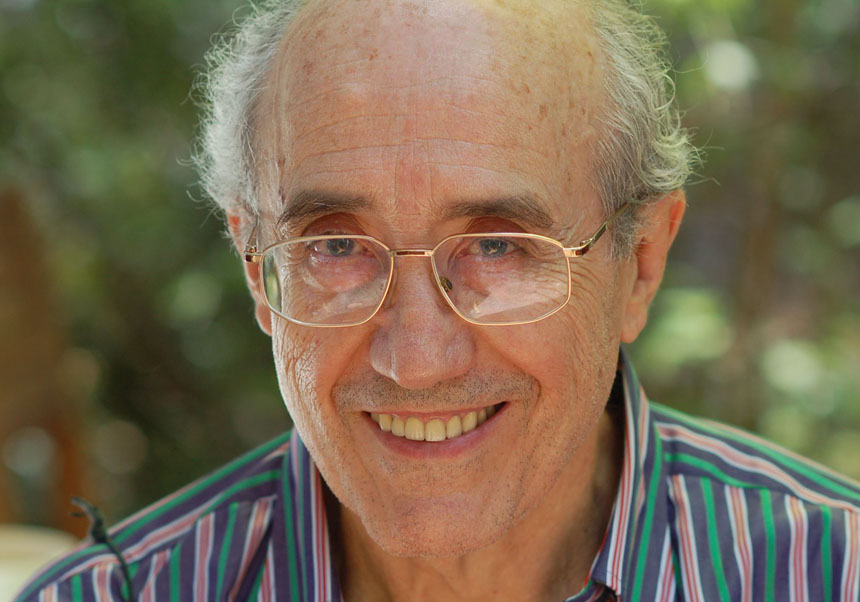The University of Valencia grants an Honorary Doctorate to Juan Pascual-Leone, the first scientist to quantify mental attention capacity
- Scientific Culture and Innovation Unit
- May 3rd, 2023

Juan Pascual-Leone (Valencia, 1933), professor emeritus and senior scholar at York University (Toronto, Canada), with a key role in the world of psychology by being the first scientist to quantify mental attention capacity, will be invested with an honorary doctorate by the University of Valencia (UV) this Thursday, May 4. The event, chaired by the chancellor of the academic institution, Mavi Mestre, will be in the assembly room of the historic building of La Nau, will start at 11 a.m. and can be followed live on the channel https://www.uv.es/eventosuv/.
The nomination proposal came from the Faculty of Psychology of the University of Valencia, and recognises the career of Dr. Pascual-Leone, a world reference in the field of psychology, which has led him to teach as a guest professor at universities in Europe, Africa, South America, and the United States.
In addition, his research has influenced many psychologists of cognitive development such as Robbie Case, Anik de Ribaupierre, Sergio Morra, Andreas Demetriou or Olivier Houdé, or the working memory research of Nelson Cowan and Randall W. Engle, as well as in the psychotherapy research of Leslie Greenberg and Antonio Pascual-Leone.
The godmother of the event and the one reading the Laudatio will be Professor Mª Ángeles Cerezo, professor of Basic Psychology at the UV, while the godfather will be Antonio Manuel Ferrer, full professor of the Department of Developmental Psychology and Education and dean of the Faculty of Psychology and Speech Therapy. The Accompanying Committee will be made up of Paula Samper, director of the Department of Basic Psychology; Javier Roca, director of the Department of Developmental Psychology and Education; Ana d’Ocon, professor of Basic Psychology and vice-dean of the Faculty of Psychology and Speech Therapy; and Francisco Alcantud, professor of Developmental and Educational Psychology.
Pascual-Leone graduated in Medicine from the University of Valencia, specialised in Psychiatry and Neurology at the University of Valladolid, and obtained a doctorate in Psychology at the University of Geneva (Switzerland) under the supervision of Jean Piaget. In 1970 he founded the neo-Piagetian approach with his article on the quantification of the stages of cognitive development, a publication that is among the 500 most cited articles in history in the field of psychology.
Author of more than 80 articles and 40 chapters, in 2021 he published with Dr. Janice Johnson’s magnum opus: The working mind: Meaning and mental attention in human development, a work in which he synthesised his 50-year research career, and which implies an advance on all his previously published works.
During the 2000s, his research addressed issues of mediation, cognitive giftedness, intelligence, language impairment, mathematics education, executive function, and neuroscience.
In the 1980s, he elaborated his theory on brain processes, proposing a model of hemispheric asymmetries, based on the distinction between effortful versus more automatic perceptual and experiential cognitive processes, which anticipated current views on the hemispheric functions’ differences. In the 1990s, he offered innovative ideas related to cognitive abilities during childhood and aging.
Juan Pascual-Leone has received numerous awards and distinctions, among which the election as an honorary member of the Academy of Psychology of Spain, as a member of the Association of Psychological Sciences and as an Honorary Doctor at the University of Cyprus.
















